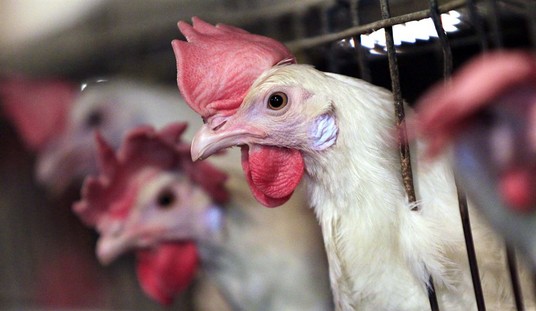I have a friend who’s a cat person. You know what I mean. A CAT PERSON. Her oldest and most beloved kitty had been with her almost 20 years when it suddenly fell ill. One day Kitty simply just stopped being able to walk properly, couldn’t eat or drink, and seemed unable to move very far. It was clear something was terribly wrong.
My friend rushed Kitty to the vet, where she paid thousands of dollars to hear a terrible diagnosis. Kitty had a common form of feline cancer. They could prolong her life by at least a few months with blood transfusions, surgery and an aggressive pharmaceutical program. However, Kitty would probably need to be fed and hydrated by hand as her ability to move without pain would make mobility extremely difficult. She would also need to put Kitty in a cat diaper, as she would be incontinent for the rest of her life. In addition, Kitty’s medication would make her sluggish as her body fought the pain and disease. The vet offered another but more tragic solution. They could permanently release Kitty from her pain and have her put to rest.
My friend didn’t think twice. She shelled out cash in the five figures to try surgery and even some experimental drugs. She felt is was worth it to have every last moment with her Kitty.
I have had several friends who have found themselves in the same predicament. It’s tough, particularly when you are single with no children. Your pets are family in a way that often fosters a deeper attachment than for people who are able to pour that energy into spouses and children.
I understand the desperation. I’m not a fan of comparing having a pet to having a child, but I do understand that my friend thought she loved that cat like a child and that’s all that matters. She would be the first to say she’d sacrifice a lot for that cat. She just couldn’t let go without a fight and I comforted her in that. Twenty years is a long time to love anything or anyone. She had the right to be devastated.
But I couldn’t condone her battle with Mother Nature, even through my empathy. Sometimes as humans we put too much of an emotional burden on our pets. Sure, there are CAT PEOPLE and DOG PEOPLE (we won’t even get into the SNAKE PEOPLE), but some people are a bit beyond that. They make their pets a stand-in for whatever emotional component is missing in their lives and frankly, I don’t think that’s a bad thing. I think that’s why God gave us the concept of pets. The problem comes when pet owners mistake their selfishly motivated needs as an act of love.
Kitty was suffering greatly. What is the life of a cat or dog that cannot move, cannot chase, cannot lounge, cannot cuddle, play or hunt? What is the life of an animal that cannot bring itself to water or nourish itself? Animals are not like humans. When their bodies begin to fail, they don’t watch tv or listen to music to pass the time. They can’t read a good book, ponder the great mysteries of the universe, or wonder whether or not they should go get that online degree after all. They are created to live by instinct. When their bodies can no longer react to instinct, are they even really living?
My friend wanted to prolong Kitty’s life for her own sake, her own comfort, not Kitty’s. Again, I’m not trying to be accusatory. I totally understand, but as an opinion writer I must call it like I see it. Kitty had nothing left of what could be called a “life” except that she was breathing. She was in pain, she had no personality left, and by every measure available she had no enjoyment. She was being kept alive because her owner couldn’t bear to see her leave this world.
If you’re dealing with something like this, ask yourself why you are prolonging this miserable life for your best, furred friend. Is it because you believe the life can be saved (a good reason) or because you can’t bear the thought of your own sadness at the loss (a bad reason)? My friend’s cat could not be saved. After 20 years should that have been a surprise? How long do we expect our pets to live? They are not meant to be lifelong companions.
Our pets tend to make us better people. Even as a parent of actual humans, one of the things you learn is that having pets helps teach your children responsibility for another life, time management and compassion. We’ve rarely been without pets in our home and we even foster dogs regularly. The love and lessons all of our pets have brought to us will always be cherished. Each loss – even the adoptions – has been heartbreaking to be sure.
It’s no wonder we don’t want to let them go. But if we truly love our pets in the sacrificial way we say we do, we will be able to make the hard decision to not let them suffer horribly. We must honor the lives they have devoted to us by letting them die with dignity when the time comes. Prolonging a painful life is not compassionate. Our whiskered loved ones need us to be mature about that.
Loss is a part of life. Most adults agree that love isn’t really love without the possibility of loss. It’s what helps us appreciate the moments we have.
Let your suffering pet go. Don’t spend thousands of dollars prolonging their pain because you don’t know how to say goodbye. Your pet has been your friend and your support for all these years. Your last act of love needs to be one of sacrifice.
Dogs will often leave the presence of their homes and owners and find a quiet place to expire when they sense death coming on. My own lovable Bull Mastiff Alfred did that many years ago as we were sitting together. I had the back door open. He suddenly started breathing heavily, got up, went to the corner of the back yard, laid down and died. He didn’t seem fearful or confused. He seemed…resolved. This is what is next. That’s it.
It’s a type of instinctual sacrifice and we need to follow that example as loving pet owners. We need to know when it is time to make the sacrifice of loss in order to peacefully usher our pets into the next, natural phase of their existence – death. Please don’t make them suffer because you aren’t brave enough to feel the pain.
They deserve more than that.














